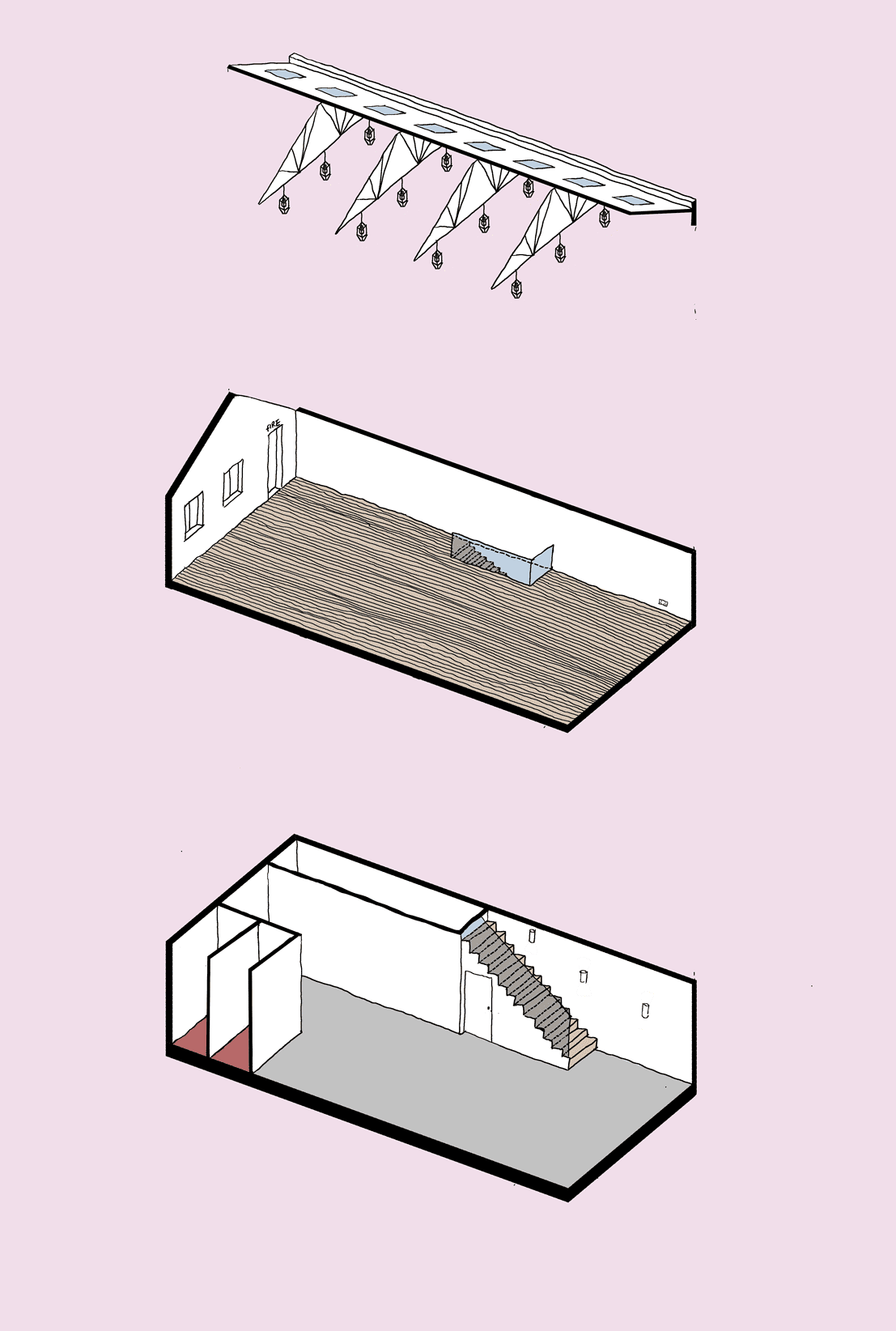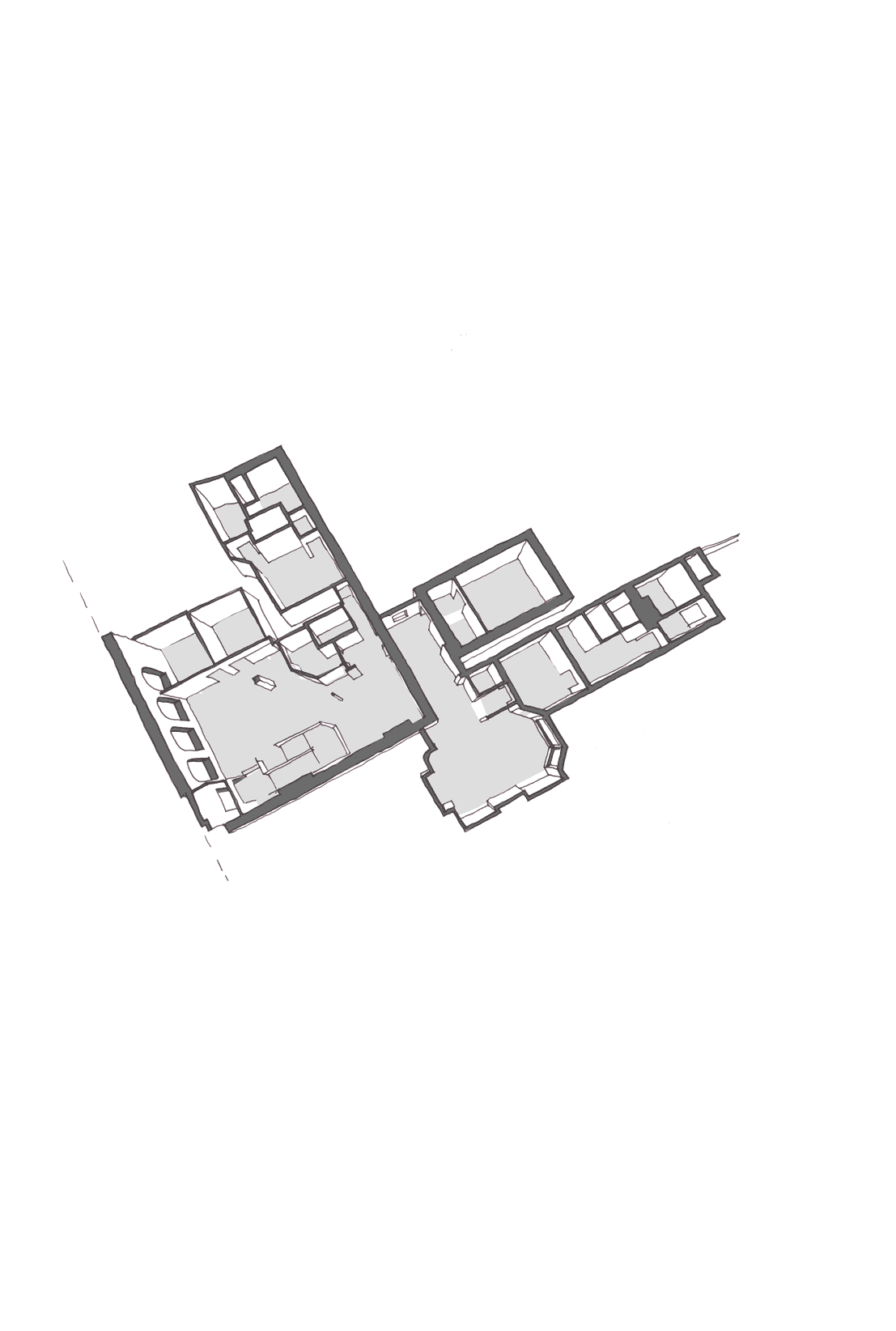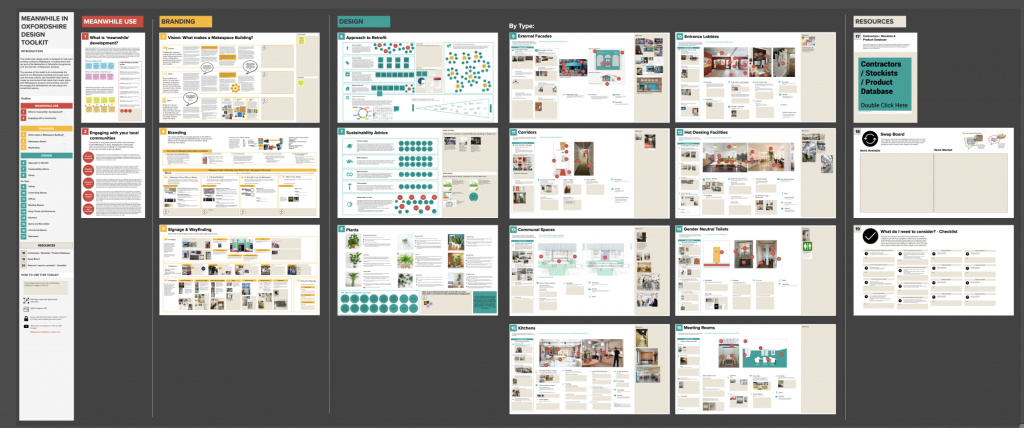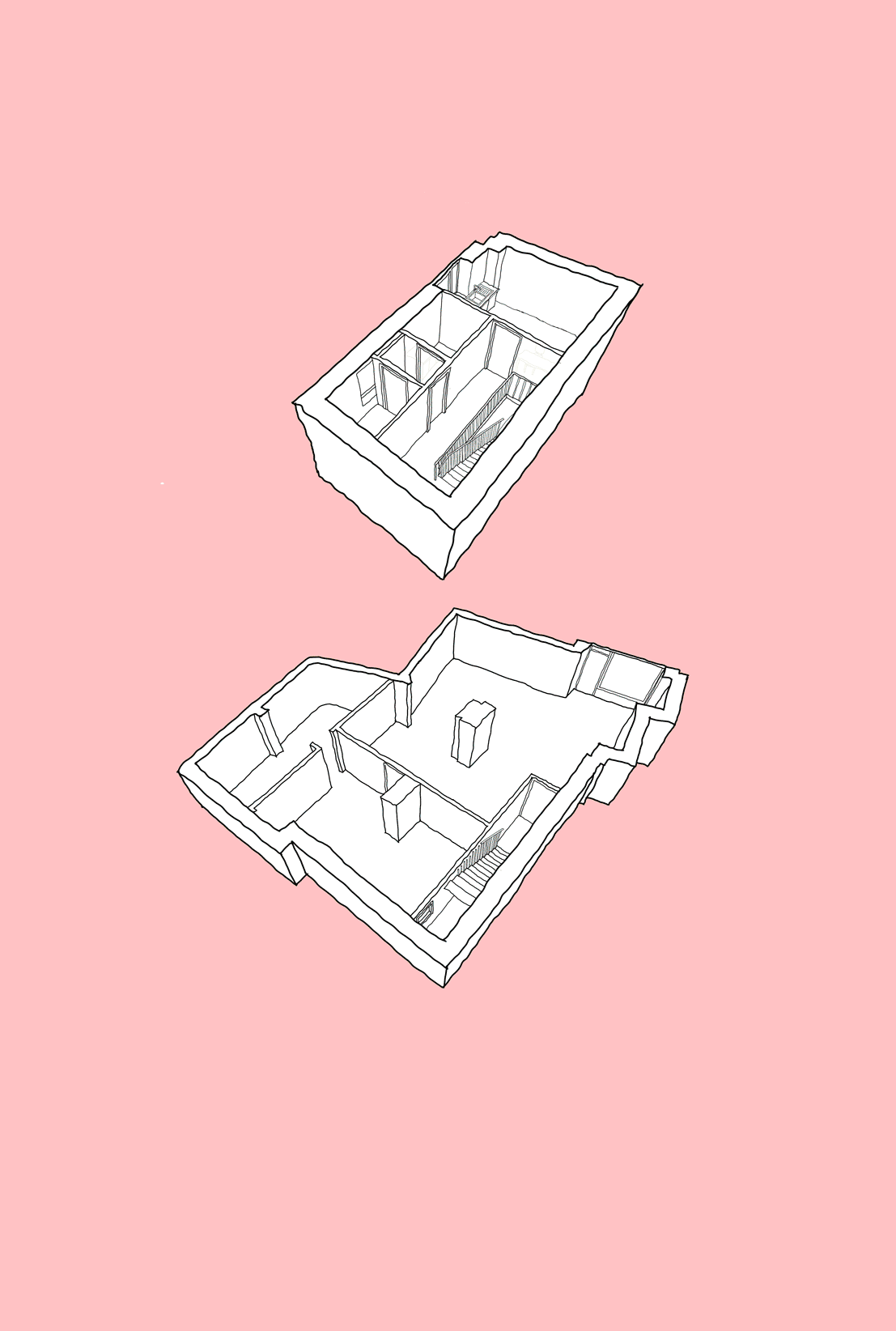In 2020, we became a project partner on the Meanwhile in Oxfordshire programme. A grant funded project led by Makespace Oxford on behalf of Oxford City Council to bring back empty and underused buildings across the county to support communities, businesses and high streets to recover after the pandemic. Over the last year, Transition by Design has worn a number of hats to support this initiative including Project Board member, Architect, Principal Designer and experts in placemaking and community engagement. We’ve learnt a lot in the past year as we try to bring sound architectural practice, and social-justice focussed design We’re a big fan of ‘working out loud’ and in our ongoing effort to figure out the role of the architect within meanwhile development, and how we can use temporary uses as a part of a broader effort to create more equitable cities, we’re opening our sketchbooks in the interest of sharing, learning and growing as a community. If you’re working on a similar project or struggling with comparable challenges then why not get in touch? We’d love to heard form you.

Where have we got to?
- 15 months into an 18 month project.
- 18 potential projects explored
- 12 projects contracted
- 5 projects complete
- 5 planning applications submitted, 4 to go
- 5 building control approvals submitted, 4 to go
- 2 projects open and occupied
- 2 projects on site
- 2 new members of staff hired
- 1 community engagement exercise in progress, 3 more to go
- 2,332.55 hours spent on the project across 10 team members
Who is involved?
Our client: Makespace Oxford
Our client’s client: Oxford City Council
Project partners: we are working closely with Neil Wild from Wild Properties to arrange access to properties and agree leases on properties; SOHA have provided buildings to be renovated
Collaborators: Ridge, Forge Engineering, Carma UK Construction, RDO Ltd., MCB Planning Ltd., OWL Building Control Solutions and more! – Local residents and stakeholders, Five district councils.

What have we been wrapping our heads around?
Shifting timelines are in the very DNA of Meanwhile development. After some initial growing pains, we’ve come to see these as a design feature rather than flaw as buildings come and go, or move back and forwards depending on a never-ending list of reasons. Finding the sweet spot between designing in flexibility to the programme, budget and brief; whilst also needing some concrete decisions in all three areas to hit key milestones in the grant funded programme is the nut to crack and one we continue to find challenging. So far we’ve tried:
- creating teams within a team, to make the most of sharing resources and problem solving together;
- creating priority lists of projects and tasks so that our designers and architects are already poised to shift their focus to the next item on the list if one is pushed back;
- finding ways for the team to support each other in responding to shifting goalposts to avoid frustration and minimise delays;
- and, importantly and often forgotten, celebrating small wins.
Nonetheless, balancing the ever changing needs of meanwhile remains tricky, especially in how we account for shifts within our financial forecasting, figuring out a financially sustainable approach to dealing with such flex is a nut we’re yet to crack.
Turning tight timeframes and shoestring budgets into an advantage. From early on, we realised that working in a more traditional and linear design and construction programme is not the best way to approach a meanwhile project and a more flexible approach is needed. Often the programmes are shorter than desired, with work stages sometimes running in parallel, perhaps even working on some tasks at risk at the request of the client. We have found it beneficial to up-skill other members of the design team on the constraints and opportunities of rapid retrofitting and short-term leases; and, have as much face-to-face time as possible in order to minimise delays and the need for late value engineering. Across the course of the project, we have developed processes, templates and a proactive working relationship with a supply chain that has prior experience. While all of this is beneficial, there is still a lot of work to do within a short timeframe and, often, it is a case of enabling our client to prioritise their needs within the brief so that they can bring about empty buildings for future occupiers within the timeframe and budget permitted by the grant funding.

Balancing creative and practical priorities that are both affordable and look great is very hard to do when working at speed. Both the funding deadline and the temporary nature of meanwhile leases require us to get buildings up and functioning quickly and we refuse to believe that that has to mean a sacrifice in quality. Even with the benefit of an understanding and creative client, we’ve gone back and forth on how best to manage quality and practicality so that they work in harmony, rather than against each other. Most recently we created a Design Toolkit, hosted in Mural and this has allowed us to create a live information board which includes information such as ‘what makes a great meanwhile building’; room typologies and approaches to rapid and sustainable retrofit. The toolkit creates a space for building managers and developers to share tips and experiences, swap materials and/or furniture, and create a learning community of their own. Through educating and up-skilling our project partners on good design, we intend to support them in making decisions that can be both creative, beautiful, affordable and compliant.

The most readily available empty buildings tend to be the ones that need the most amount of work. Buildings need to all have a certain level of work done to them to make them usable, safe and comfortable for occupiers to use. Sometimes
this requires doing work to make them compliant with certain standards like health and safety or building control; perhaps to make them structurally safe like replacing the roof and sometimes it is a case of the new occupier requiring smaller rooms within a larger space to carry out their usual activities. Navigating the question of value in the context of a short-term lease is interesting and, before decisions on work undertaken are made, we think it comes down to the following elements: – knowing your impacts, informed spending, use what you have and building specific advice.
We have built detailed information on these approaches to retrofit into the Design Toolkit, so that building managers and developers can make decisions on meanwhile projects that are ‘valuable’ because they are affordable, practical, time sensitive and socially uplifting.
The Meanwhile in Oxfordshire project has already achieved much, including finding new homes for local community organisations and businesses, opening a series of pop ups in Oxford’s Covered Market, and in the opening of The Community Works, an exciting civic incubator in Central Oxford.

In supporting Makespace to deliver these projects we’ve nurtured strong design team partnerships that are becoming well versed in meanwhile development; as well as which roles each area of the design team needs to bring to enable a meanwhile project to be delivered on time, on budget and of high quality.
As we head into the final 3 months of the programme, we are working hard to focus our energy and use our technical and design skills to support Makespace Oxford to deliver projects that they are proud of. Amidst the heightened awareness of the project coming to an end, we are excited to design spaces that Oxford’s citizens and business community can take up residence and thrive in.
In addition, the project is bringing exciting new debates into our studio as we critique the politics of meanwhile and temporality. There are some important questions to be asked of Meanwhile development, including:
- Who gets to participate?
- Who are we expecting to make do with precarious contracts?
- Who is giving free labour?
- And what happens after a project finishes?
We see our role as continuing to ask these questions, of ourselves and our partners and exploring how we can embed social and environmental justice through our praxis.
Over the last year, Transition by Design has learned a lot about what it means to be architects working on meanwhile development projects and we look forward to sharing more of these learnings with you very shortly.
